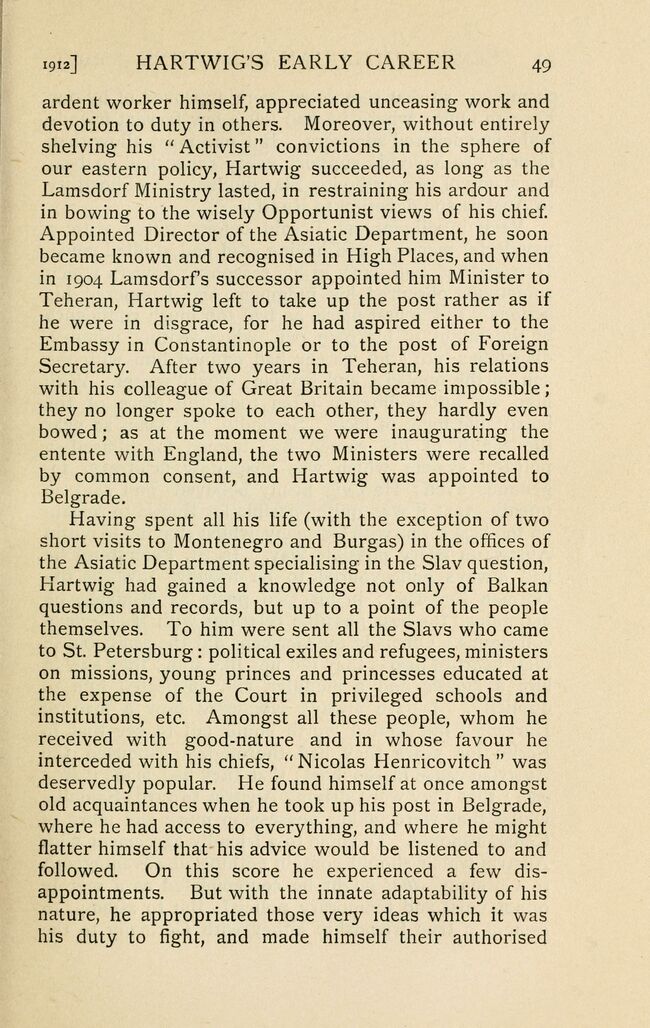
Full resolution (JPEG) - On this page / på denna sida - V. Serbo-Bulgarian relations

<< prev. page << föreg. sida << >> nästa sida >> next page >>
Below is the raw OCR text
from the above scanned image.
Do you see an error? Proofread the page now!
Här nedan syns maskintolkade texten från faksimilbilden ovan.
Ser du något fel? Korrekturläs sidan nu!
This page has never been proofread. / Denna sida har aldrig korrekturlästs.
I9I2] HARTWIG’S EARLY CAREER 49
ardent worker himself, appreciated unceasing work and
devotion to duty in others. Moreover, without entirely
shelving his " Activist" convictions in the sphere of
our eastern policy, Hartwig succeeded, as long as the
Lamsdorf Ministry lasted, in restraining his ardour and
in bowing to the wisely Opportunist views of his chief.
Appointed Director of the Asiatic Department, he soon
became known and recognised in High Places, and when
in 1904 Lamsdorf’s successor appointed him Minister to
Teheran, Hartwig left to take up the post rather as if
he were in disgrace, for he had aspired either to the
Embassy in Constantinople or to the post of Foreign
Secretary. After two years in Teheran, his relations
with his colleague of Great Britain became impossible;
they no longer spoke to each other, they hardly even
bowed; as at the moment we were inaugurating the
entente with England, the two Ministers were recalled
by common consent, and Hartwig was appointed to
Belgrade.
Having spent all his life (with the exception of two
short visits to Montenegro and Burgas) in the offices of
the Asiatic Department specialising in the Slav question,
Hartwig had gained a knowledge not only of Balkan
questions and records, but up to a point of the people
themselves. To him were sent all the Slavs who came
to St. Petersburg: political exiles and refugees, ministers
on missions, young princes and princesses educated at
the expense of the Court in privileged schools and
institutions, etc. Amongst all these people, whom he
received with good-nature and in whose favour he
interceded with his chiefs, "Nicolas Henricovitch " was
deservedly popular. He found himself at once amongst
old acquaintances when he took up his post in Belgrade,
where he had access to everything, and where he might
flatter himself that his advice would be listened to and
followed. On this score he experienced a few
disappointments. But with the innate adaptability of his
nature, he appropriated those very ideas which it was
his duty to fight, and made himself their authorised
<< prev. page << föreg. sida << >> nästa sida >> next page >>